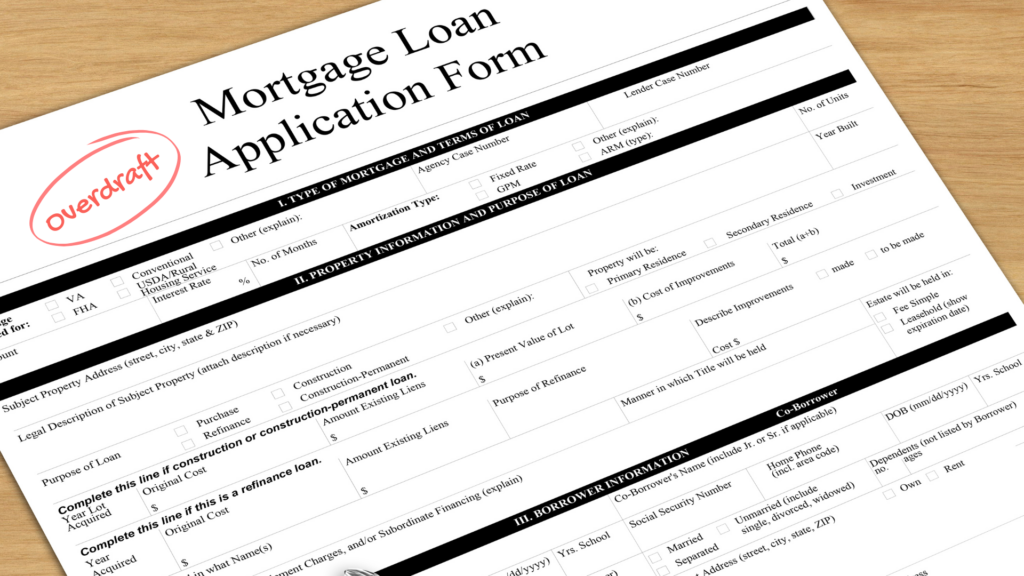£800 A Month Mortgage: What Can You Borrow?

Getting a mortgage is one of the biggest financial moves you’ll ever make, and with so many options on the table, it’s easy to feel a bit lost.
How much can you borrow? What will impact your chances? And most importantly, how do you secure the best deal?
If you have a tight budget—maybe due to other expenses or wanting to keep your lifestyle comfortable—you might aim to keep your monthly mortgage payments around £800.
This guide will help you understand the process clearly, so you can secure a mortgage that suits your needs without straining your finances.
What Mortgage Can I Get for £800 a Month in the UK?
The amount you can borrow depends on a few key factors:
- Interest Rate. This is the cost of your mortgage, shown as a percentage. Lower interest rates mean you can borrow more for the same monthly payment.
- Mortgage Term. This is the length of time you’ll take to repay the mortgage. A longer term usually means lower monthly payments, but you’ll pay more interest over time.
- Your Financial Situation. Lenders will look at your income, spending, credit history, and other financial commitments to decide how much they’ll lend you.
Taking these factors into account, let’s see what you could borrow with £800 a month, starting with a repayment mortgage.
With this type of mortgage, your monthly payments cover both the interest and a portion of the amount you borrowed.
Here’s a rough guide:
| Interest Rate | Mortgage Term | Mortgage Amount |
| 4.5% | 25 years | £143,928 |
| 5.0% | 25 years | £136,848 |
| 5.5% | 25 years | £130,275 |
| 6.0% | 25 years | £124,165 |
Each monthly payment reduces the loan amount and covers the interest. By the end of the term, you’ll own your home outright.
An interest-only mortgage, on the other hand, involves paying just the interest each month.
The amount you borrowed (the principal) stays the same throughout the term.
You’ll need a plan to repay the full amount at the end of the mortgage term.
Here’s what you could borrow with £800 a month on an interest-only mortgage:
| Interest Rate | Mortgage Term | Mortgage Amount |
|---|---|---|
| 4.5% | 25 years | £213,333 |
| 5.0% | 25 years | £192,000 |
| 5.5% | 25 years | £174,545 |
| 6.0% | 25 years | £160,000 |
With an interest-only mortgage, your monthly payments are lower, but the full amount you borrowed remains due at the end of the term.
You’ll need to plan ahead—whether that’s through investments, savings, or selling the property—to repay the mortgage.
How Lenders Decide the Mortgage You Get
Other than interest rates and the mortgage term, which directly affect the amount you’ll pay, there are other factors lenders use to decide how much mortgage you can get.
Let’s take a closer look at these factors:
Income
Lenders often let you borrow up to 4.5 times what you earn each year. Some might lend you even more, depending on your money situation.
For example, if you earn £40,000 a year, you could borrow around £160,000.
The more you earn, the more you can usually borrow. But your debts and other bills also matter.
Debt-to-Income Ratio
The debt-to-income ratio (DTI) compares your monthly debt payments to your monthly gross income. Lenders use this to see if you can handle more debt.
The lower your DTI, the better. This means you have more money left over after paying your bills.
Most lenders like to see a DTI of 36% or lower. But this can change depending on your credit score and how steady your income is.
Use the debt-to-income ratio calculator to see where you stand and how lenders perceive you.
Credit History
A good credit score can help you get a better mortgage deal. Lenders like it when you pay your bills on time and don’t owe lots of money.
If you’ve missed payments or have debts, it might be harder to get a mortgage, and you could pay more interest.
Don’t worry if your credit score isn’t perfect. There are lenders who help people with poor credit.
Deposit Size
The money you save for your deposit makes a big difference to your mortgage.
Lenders usually offer better deals if you have a bigger deposit, like 10%, 20%, or 40% of the house price.
A bigger deposit means less risk for the lender. This often means a lower interest rate and a better mortgage deal for you.
Employment Status
Lenders like it when you have a steady job. If you work full-time for the same company, it’s usually easier to get a mortgage.
If you’re self-employed or have a more complicated work situation, you might need to show more paperwork.
Lenders often ask for your accounts for the last two or three years to check your income.
There are special lenders who can help if your job situation is different.
Property Type
The type of property you want to buy can also affect your mortgage options.
Standard properties, like freehold houses, are usually easier to finance.
But non-standard properties—like homes made from unusual materials, leasehold flats, or listed buildings—might need special mortgage products.
These properties are often seen as higher risk due to potential resale or maintenance issues.
Age
How old you are can make a difference to your mortgage.
Most lenders have a cut-off age for when you finish paying it back, often around 70 or 80.
This means if you’re older, you might have to pay your mortgage back quicker. This can mean bigger monthly payments.
But don’t worry if you’re older. Some lenders are happy to lend to people who are older if you can show you have a good income or a pension.
Profession
What you do for a living can make a difference to your mortgage.
Some lenders offer better deals to people in certain jobs, like doctors or lawyers, because they think these jobs are stable and pay well.
But if your job isn’t as steady, or if you don’t earn a lot, you might find it harder to get a mortgage.
Other Things That Matter
There are other things that can affect your mortgage too.
Where the house is, the economy, and the type of mortgage you choose all make a difference.
For example, some places are riskier for lenders because of flooding or other problems. This can affect your mortgage deal.
Also, things like interest rates and how much prices are going up (inflation) can change what mortgages are available and how much they cost.
Lender-Specific Criteria
Every lender has its own rules.
What one lender will accept, another might not. They look at things like how much you earn, your credit score, and what kind of job you have.
To find the best deal, it’s a good idea to compare different lenders or use a mortgage broker.
Can You Get a 30-Year Mortgage for £800 a Month?
Yes, you can get a mortgage with payments of £800 a month over 30 years. This means you’ll pay less each month.
But, you’ll end up paying more overall because you’ll be paying interest for longer.
Here’s a rough idea of what you could borrow with £800 a month for a 30-year mortgage:
| Interest Rate | Mortgage Term | Mortgage Amount |
|---|---|---|
| 4.5% | 30 years | £161,070 |
| 5.0% | 30 years | £149,815 |
| 5.5% | 30 years | £139,707 |
| 6.0% | 30 years | £130,585 |
You can usually borrow more with a 30-year mortgage than a 25-year one.
For example, with a 5% interest rate, you could borrow about £149,815 over 30 years, compared to £136,848 over 25 years.
But remember, you’ll pay more interest overall with a longer mortgage.
Other Things Lenders Look At
When you apply for a 30-year mortgage, lenders will check the same things as with any mortgage. This includes your income, credit history, and debt-to-income ratio.
But because a 30-year mortgage is longer, lenders might look more closely at your age and your retirement plans. They want to make sure you can still afford the mortgage when you’re older.
For example, if you’re in your 50s and applying for a 30-year mortgage, lenders will want to know if you’ll have enough income in your 70s or 80s to keep making payments.
In these cases, having a solid pension plan or other income sources can help.
Can You Remortgage to Pay £800 a Month?
Yes, you can try to get your mortgage payments down to £800 a month by remortgaging. But it depends on your money situation.
First, look at your current mortgage. How much do you owe? What’s your interest rate? How long do you have left to pay?
If you pay more than £800 now, remortgaging might help, especially if you can get a better deal.
Remortgaging means getting a new mortgage.This can help you change your mortgage to pay £800.
For example, you could pay your mortgage over a longer time, but you’ll pay more interest. Or, you could get a better interest rate and pay less without changing how long you pay.
But remortgaging costs money. You might have to pay to finish your old mortgage early, fees for the new one, and other costs.
Check if you’ll save enough money to cover these costs.
Also, think about how much your house is worth. If it’s worth a lot more than you owe, you could borrow more money when you remortgage. But this means you’ll owe more in the long run.
Finally, think about your plans. Lower payments now might be good, but paying off your mortgage quicker could be better in the long run.
To decide if remortgaging is right for you, talk to a mortgage advisor. They can help you find the best deal and make sure it suits your plans.
How to Make Your £800 a Month Mortgage Affordable?
Before stretching your budget to afford a bigger mortgage, it’s important to consider all your monthly expenses.
Your mortgage is just one part of what you’ll pay each month. Don’t forget to factor in utility bills, council tax, insurance, and other living costs.
If you’re unsure how much you can afford, use a mortgage affordability calculator. It estimates your borrowing limit based on your income.
Key Takeaways
- The mortgage amount you can get for £800 a month depends on interest rate, mortgage term, and your financial situation.
- With a repayment mortgage, you could borrow around £124,165 to £143,928 over 25 years, depending on interest rates.
- With an interest-only mortgage, you could borrow between £160,000 and £213,333, but you’ll need a plan to repay the principal later.
- Lenders typically allow you to borrow up to 4.5 times your annual income, considering your debts and financial commitments.
- A good credit score, a larger deposit, and stable employment improve your chances of getting a better mortgage deal.
- With a 30-year mortgage, you could borrow up to £161,070 for £800 a month, but you’ll pay more in interest overall.
- Remortgaging can lower your payments to £800 a month, but consider the costs and long-term impact.
The Bottom Line
You can get a mortgage with £800 a month. But there are a few things that matter.
Your credit score, how much you can save up, and how long you want to pay it back all make a difference.
A mortgage broker can really help you out. They can help you:
- Get access to exclusive mortgage deals, so you can secure the best rates available.
- Have a mortgage tailored to your needs and goals, making sure it works for you.
- Save yourself the time and hassle of searching—your broker does the legwork.
- Enjoy a smoother application process with a better chance of approval.
- Get expert advice to improve your finances and qualify for better offers.
- Benefit from a broker’s ability to negotiate better terms and lower fees on your behalf.
- Understand all the costs upfront, so there are no unexpected surprises.
- Feel supported throughout the whole process, making it much less stressful for you.
Need help? Get in touch. We’ll connect you with a reliable mortgage broker to help with your mortgage application.
Get Matched With Your Dream Mortgage Advisor...

Frequently asked questions
Can I get a mortgage with £800 a month repayments?
Yes, you can. The exact amount you can borrow will depend on the interest rate, mortgage term, and your personal financial situation.
Is an interest-only mortgage a good idea?
Interest-only mortgages can be appealing due to lower monthly payments, but you’ll need a plan to repay the loan at the end of the term.
What if I have a bad credit history?
You can still get a mortgage, but you might face higher interest rates or need a larger deposit. Working with a broker can help find the right lender for you.
How does my age affect my mortgage options?
Lenders may restrict the mortgage term based on your age, which can affect how much you can borrow. Older borrowers might need to consider shorter terms.




